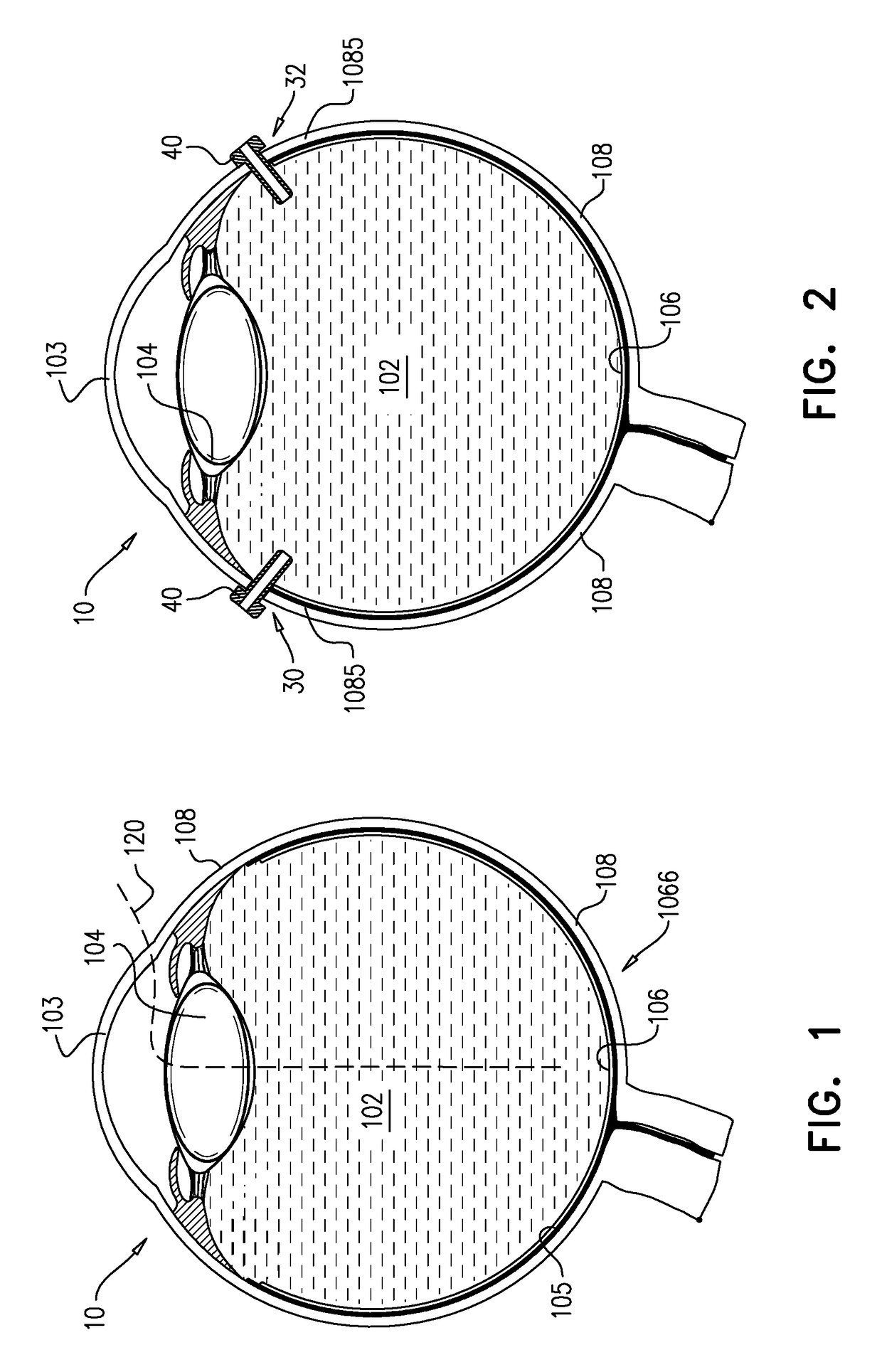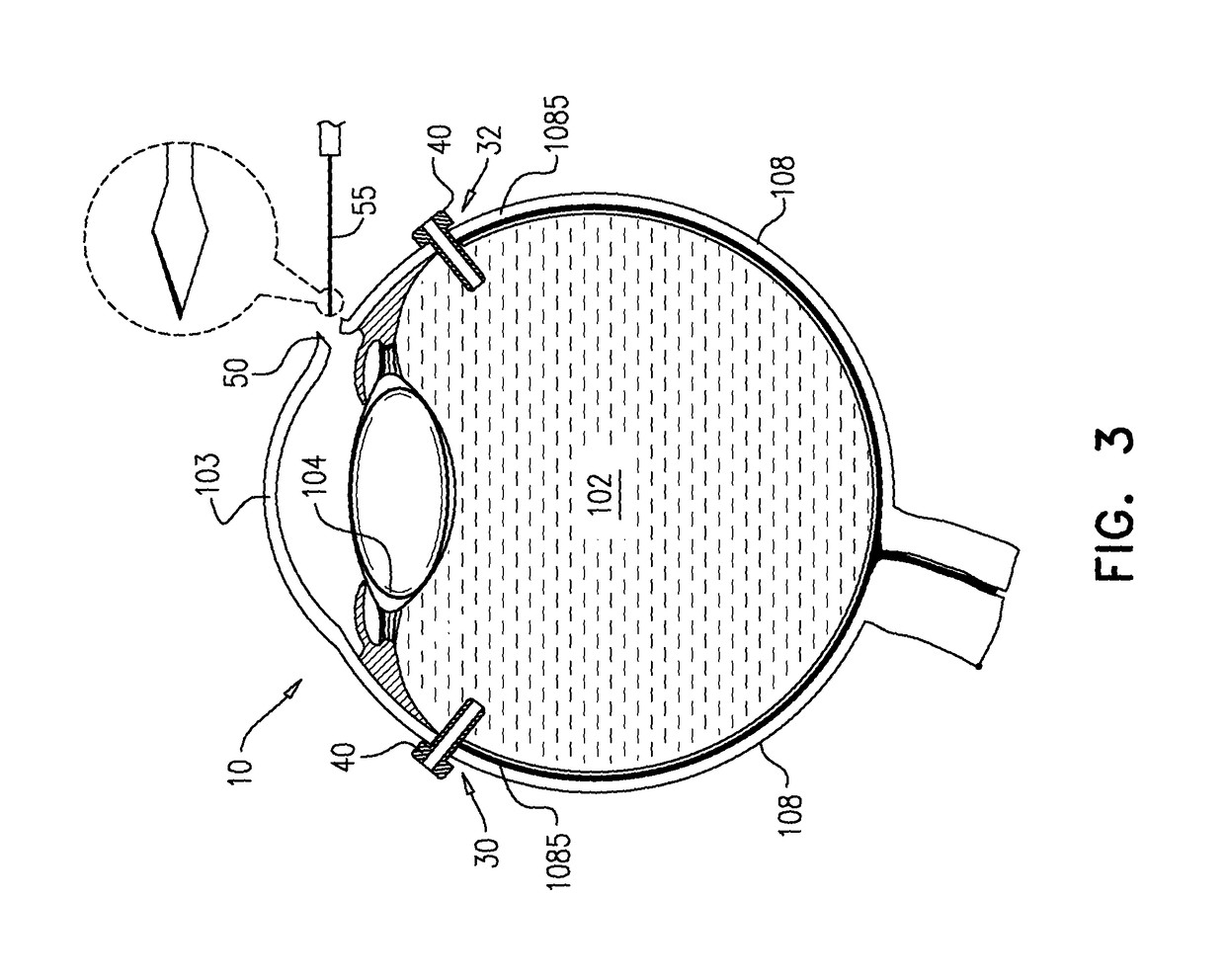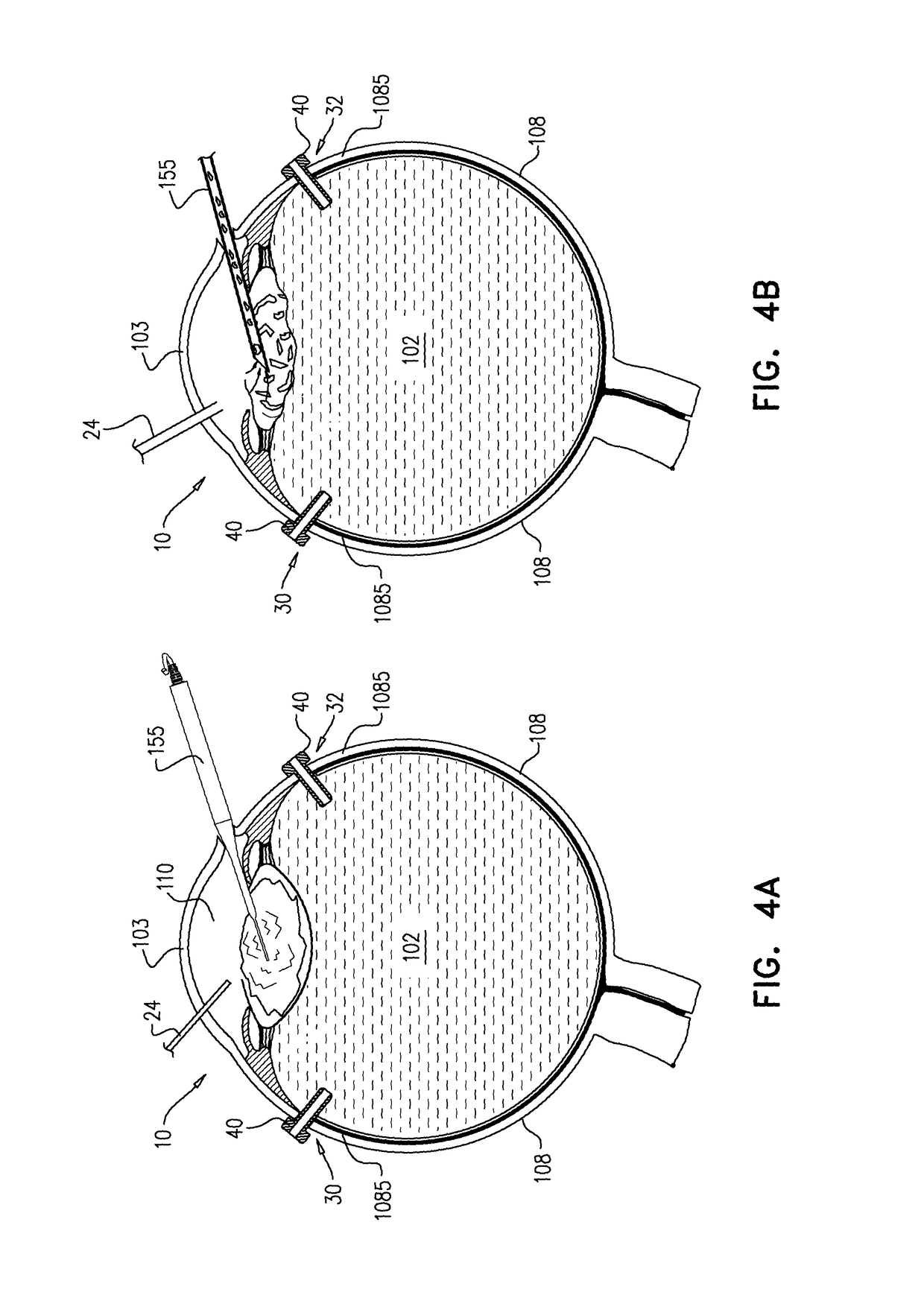Surgical techniques for implantation of a retinal implant
a surgical technique and implant technology, applied in the field of implantable medical devices, can solve problems such as blindness, visual impairment, retinal malfunction,
- Summary
- Abstract
- Description
- Claims
- Application Information
AI Technical Summary
Benefits of technology
Problems solved by technology
Method used
Image
Examples
Embodiment Construction
[0101]FIGS. 1-18 are schematic illustrations of the surgical procedure for implantation of apparatus 20 for stimulation of a retina 106, in accordance with some applications of the present invention. In particular, FIGS. 1-18 describe introducing apparatus 20 into eye 10 and positioning the apparatus on retina 106.
[0102]Reference is first made to FIG. 1, which is a schematic illustration of a cross section of eye 10 of the subject showing a path 120 by which apparatus 20 is to be implanted in eye 10. FIG. 1 additionally shows cornea 103, vitreous body 102, lens 104, sclera 108, choroid 105, retina 106 and macula 1066.
[0103]Reference is now made to FIG. 2 which is a schematic illustration of a cross section of eye 10 showing openings in a posterior-segment scleral wall 1085 of eye 10, created for insertion of one or more tools therethrough, in accordance with some applications of the present invention. For some applications, in order to facilitate the implantation procedure, at least...
PUM
 Login to View More
Login to View More Abstract
Description
Claims
Application Information
 Login to View More
Login to View More - R&D
- Intellectual Property
- Life Sciences
- Materials
- Tech Scout
- Unparalleled Data Quality
- Higher Quality Content
- 60% Fewer Hallucinations
Browse by: Latest US Patents, China's latest patents, Technical Efficacy Thesaurus, Application Domain, Technology Topic, Popular Technical Reports.
© 2025 PatSnap. All rights reserved.Legal|Privacy policy|Modern Slavery Act Transparency Statement|Sitemap|About US| Contact US: help@patsnap.com



